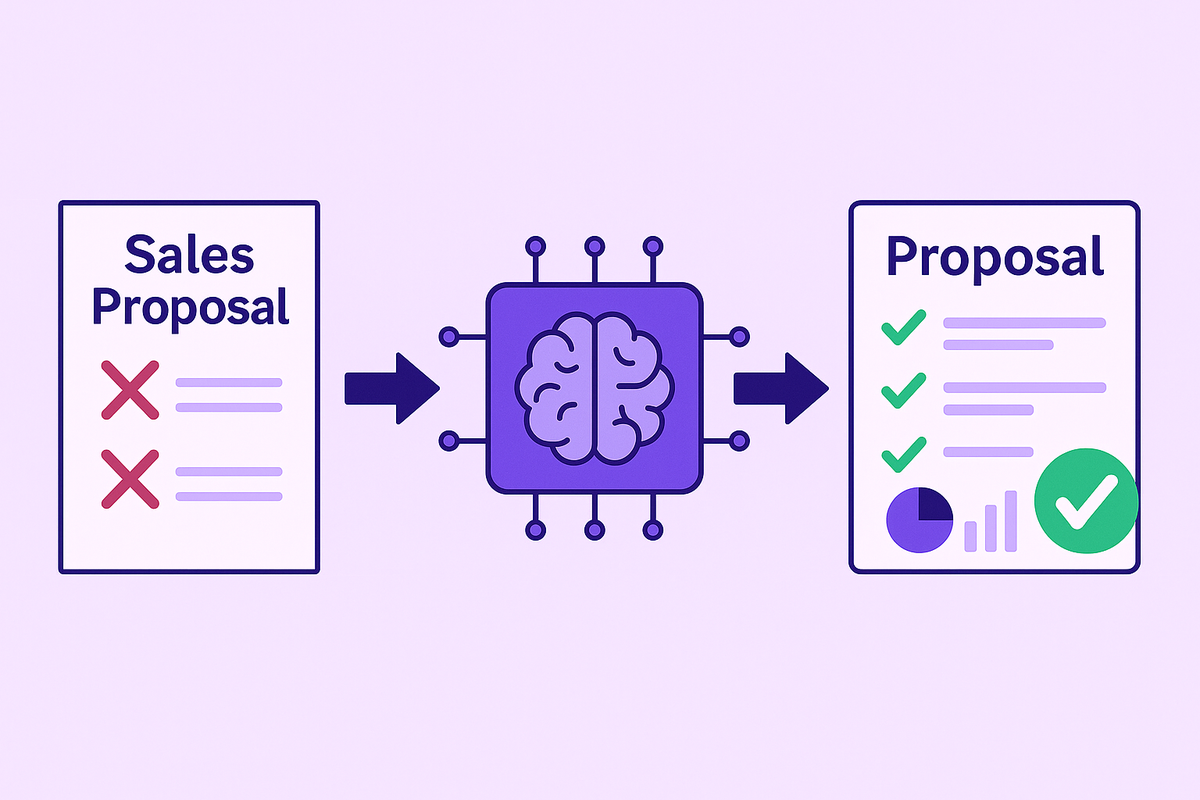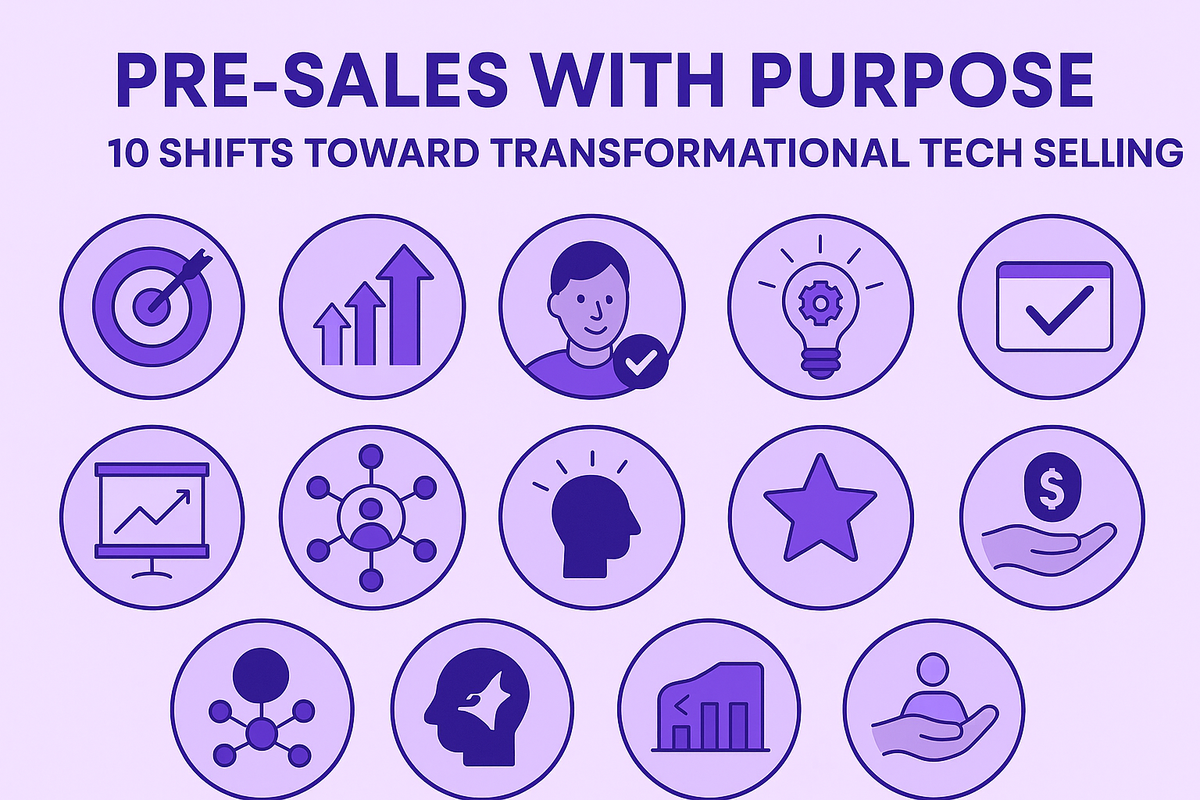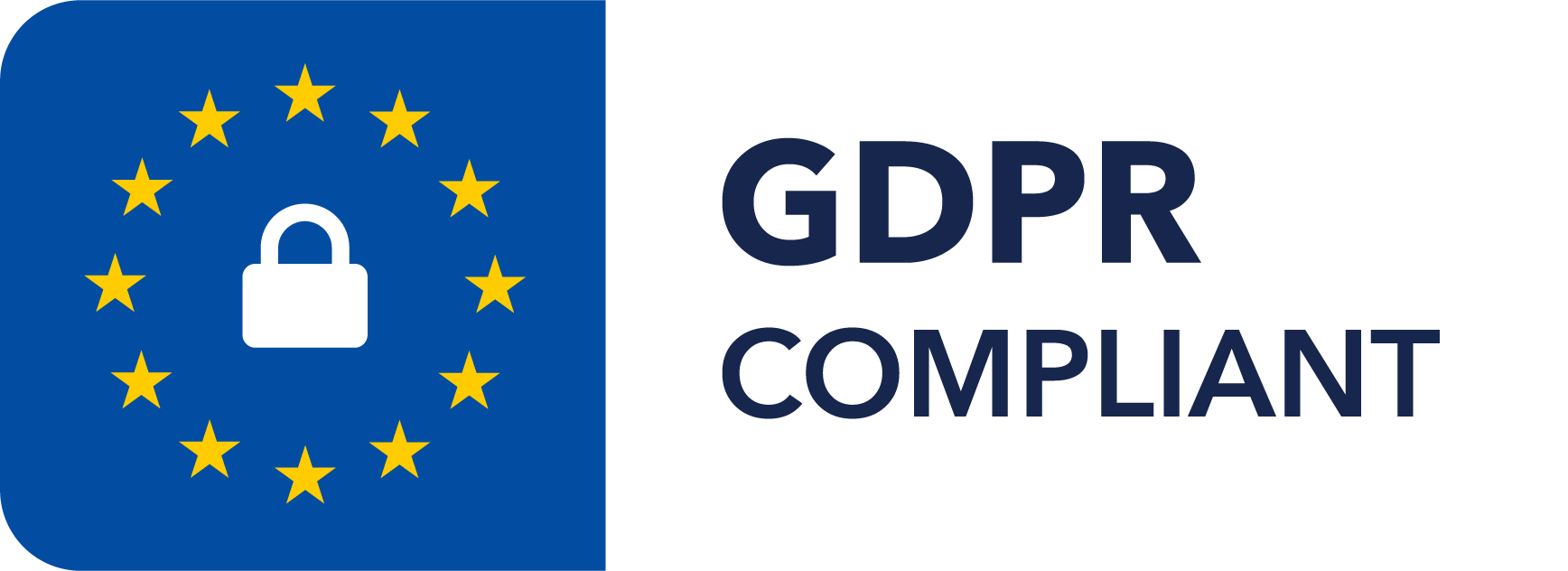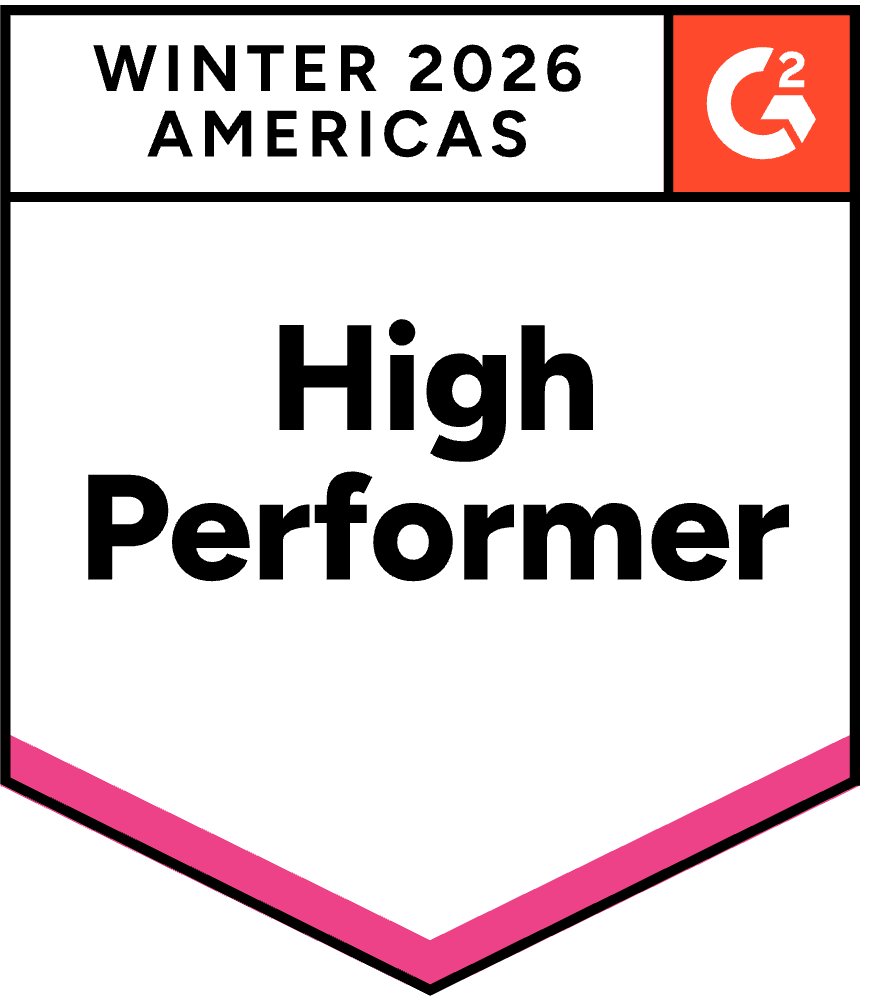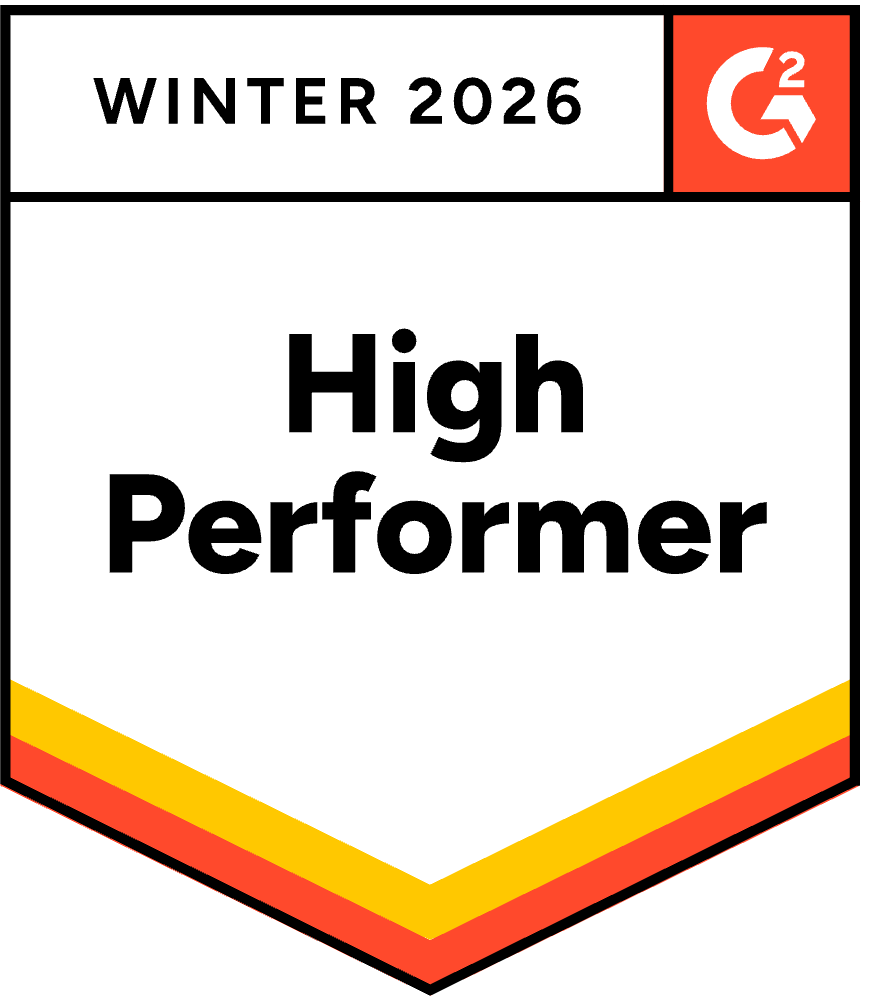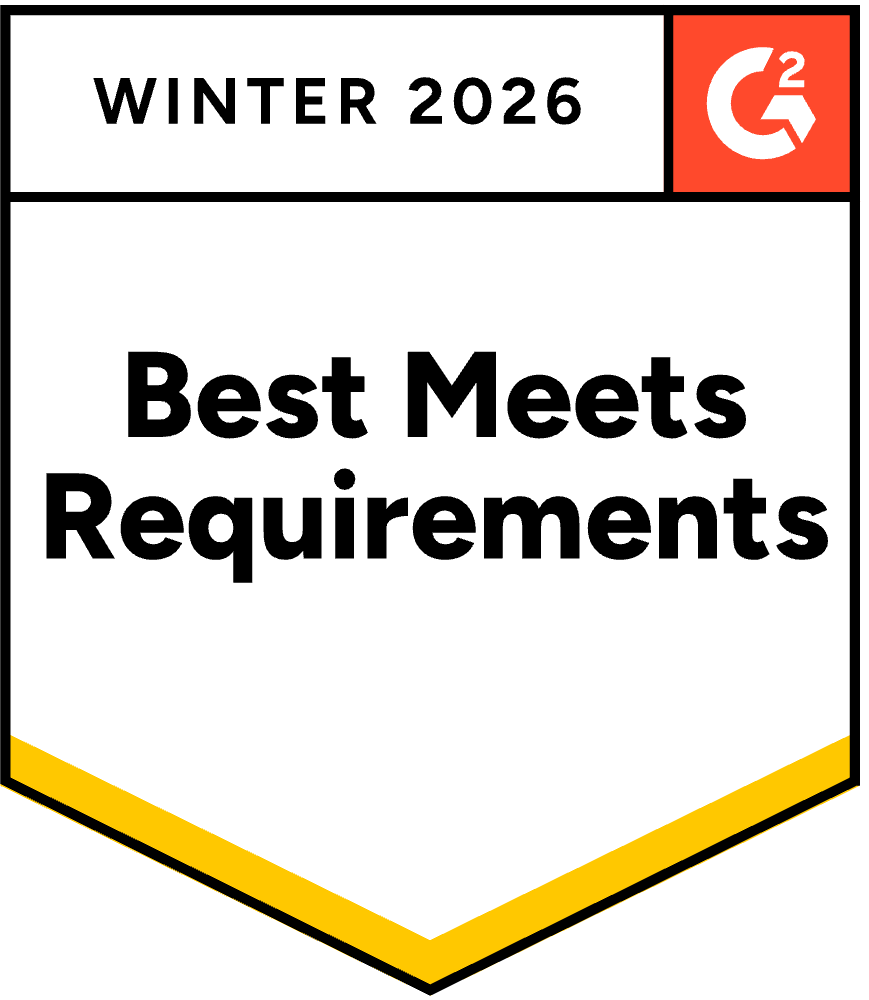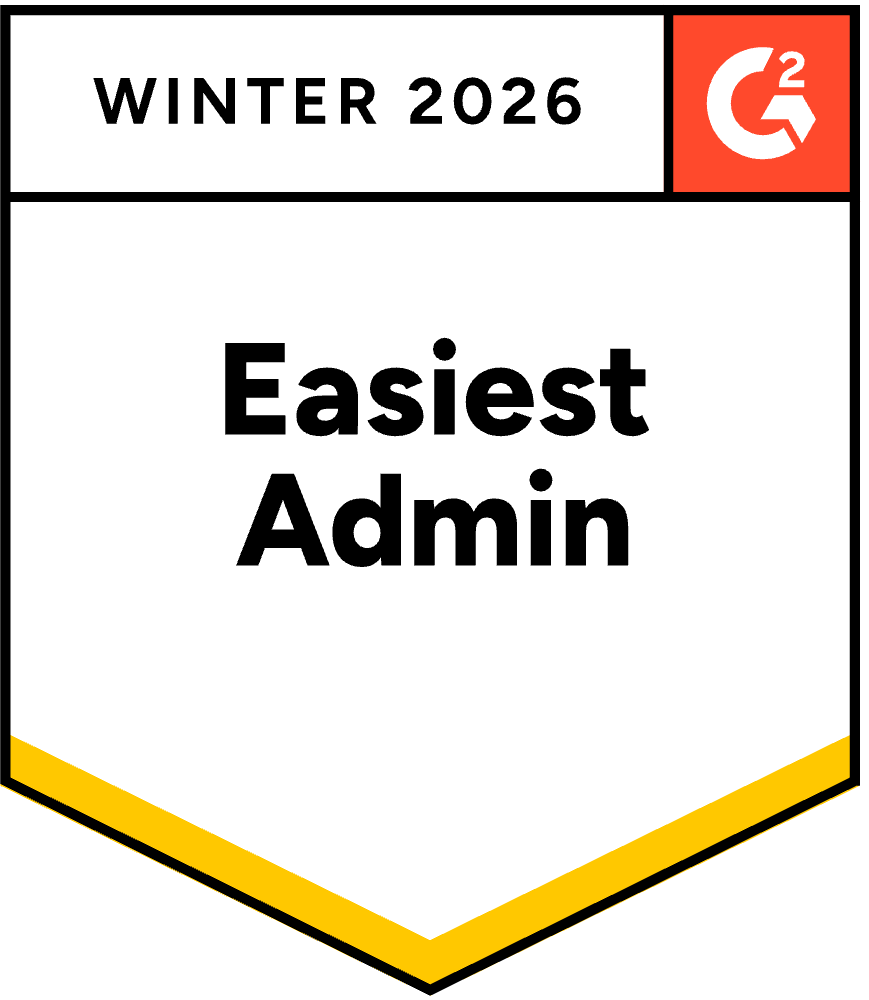How to Evaluate Iris RFP Software for Your Team
October 16, 2025
By
Evie Secilmis

That feeling when a new Request for Proposal lands in your inbox? It's a mix of excitement and dread. On one hand, a new opportunity. On the other, a mountain of work with no guaranteed payoff. The default reaction is to chase everything, but that’s a fast track to burnout. The most successful teams know the secret: saying "no" more often. This guide is all about building that strategic muscle. We’ll give you a practical framework to decide which RFPs are worth your time, helping you focus on the deals you can actually win. We'll also explain why you should evaluate Iris on RFP software to bring speed and intelligence to your process.
Key Takeaways
- Build a Go/No-Go Framework: Stop chasing every RFP. Create a scoring system with clear criteria to quickly identify which opportunities are worth your team's energy and which ones you should confidently pass on.
- Evaluate Beyond the Technical Fit: A winnable RFP is about more than just your product. Honestly assess the project’s financial viability, your team’s availability, and the competitive landscape before committing your valuable resources.
- Systemize Your Analysis Process: Move away from gut decisions and messy spreadsheets. Use standardized checklists and AI-powered tools to make your evaluation process faster, more consistent, and data-driven.
What's an RFP and Why Should You Care?
Before you can decide whether to pursue an RFP, you need a solid grasp of what it is and its role in the sales process. A Request for Proposal (RFP) is more than just a questionnaire; it's a formal invitation from a potential client for you to solve their problem. Understanding the fundamentals, the strategic importance, and the different types of requests will help you filter opportunities and focus your energy on the deals you can actually win. This foundational knowledge is the first step in building a smarter, more effective RFP response strategy.
The Anatomy of a Request for Proposal
Think of an RFP as a detailed document where a business outlines a project and asks companies, like yours, to propose a solution. The client lays out their challenges and goals, and it’s your job to respond with a proposal explaining how you're the perfect fit. It’s a structured way for organizations to gather offers and compare potential vendors side-by-side. For your sales team, it’s a formal opportunity to showcase your expertise and prove why you’re the best choice for the job.
How a Good RFP Sets You Up for Success
From the client's perspective, an RFP helps them compare vendors and define their project needs. For you, the responder, the strategic value is immense. A well-crafted RFP gives you a clear window into the client's pain points, allowing you to tailor your pitch precisely. It moves the conversation beyond price to a value-based discussion about your methodology and unique strengths. Winning an RFP can lead to significant contracts and establish your company as a trusted partner, which is why an efficient proposal generation process is so critical.
Understanding the Different Types of RFPs
Not every request you receive will be a full-blown RFP. Knowing the common variations helps you gauge the client's buying stage and the effort required.
- RFI (Request for Information): An early-stage document to learn about vendors. Your response should be educational and focused on your capabilities.
- RFQ (Request for Quotation): This is all about the numbers. The client wants price quotes for specific items, and the decision is often cost-driven.
- RFP (Request for Proposal): The most detailed request. The client wants a complete solution, so your response must cover your methods, timeline, costs, and qualifications.
Why Responding to RFPs is So Challenging
If you've ever felt that familiar mix of dread and opportunity when a new RFP lands in your inbox, you're not alone. These documents are notoriously complex, and the process of responding is packed with potential pitfalls that can trip up even the most seasoned teams. It’s not just about writing a good proposal; it’s about managing a high-stakes, cross-functional project under an unforgiving deadline. From coordinating with subject matter experts across the company to ensuring every single detail is perfect, the challenges are very real. Understanding these common hurdles is the first step toward building a process that can handle them without burning out your team.
The Drain on Time and Resources
Let's be honest: RFPs are a massive time sink. Crafting a thoughtful, comprehensive response isn't a one-person job. It requires an "all hands on deck" effort, pulling in subject matter experts from product, legal, marketing, and finance. These team members have to step away from their core responsibilities to find, verify, and write content for the proposal. This scramble not only disrupts daily workflows but also comes with a significant opportunity cost. Every hour your team spends digging for information is an hour they aren't spending on other revenue-generating activities. An efficient AI deal desk can centralize this knowledge, giving everyone their time back.
Maintaining a Consistent Brand Voice
When you have five different people writing five different sections of a proposal, the final document can end up sounding like it was written by five different people. Each contributor brings their own style, tone, and terminology, which can lead to a disjointed and unprofessional submission. The real challenge is blending this collective expertise into a single, cohesive narrative that reflects your company's brand voice. You need your proposal to sound authoritative yet approachable, and detailed yet clear. Striking that balance while customizing the content for each specific client is a difficult art to master under pressure.
The Pressure for Perfection
In the world of RFPs, there’s no room for error. A single missed requirement, a typo in a key statistic, or a failure to follow formatting instructions can get your proposal disqualified before it’s even read. The stakes are incredibly high, and the pressure to submit a flawless document is intense. This means every response has to be meticulously reviewed, often multiple times, to catch any potential mistakes. This final check is a stressful and time-consuming step, but it's absolutely critical. As some companies have found, having a system to ensure accuracy and compliance is essential for improving win rates and reducing last-minute panic.
Build Your Go/No-Go Decision Framework
It might sound counterintuitive, but the secret to winning more RFPs is learning to say "no" more often. Chasing every opportunity that lands in your inbox is a fast track to burnout and wasted resources. A go/no-go decision framework is your filter, helping you quickly separate the golden opportunities from the dead ends. By creating a structured process, you can stop making gut decisions and start focusing your team’s energy on the proposals you have a real shot at winning. This isn't about being pessimistic; it's about being strategic and setting your team up for success from the very beginning.
How to Define Your Go/No-Go Criteria
The first step is deciding what an ideal opportunity looks like for your business. Choosing not to bid on every Request for Proposal can actually help your company win more business and be more productive. Sit down with your team and create a checklist of your non-negotiables. Does the project align with your company’s long-term goals? Do you have a prior relationship with the client? Is the budget realistic? Do you have a unique solution that sets you apart from the competition? Establishing these clear criteria is essential to focus your efforts on the most promising RFPs and confidently pass on the ones that aren't a good fit.
Develop a Scoring System That Works
Once you have your criteria, you can build a scoring system to evaluate opportunities objectively. This moves you from a simple yes/no checklist to a more nuanced evaluation. Decide which aspects of a proposal are most important and give them more weight. For instance, your company's experience and technical fit might be more critical than price alone. A well-structured scoring system helps you quantify each opportunity, making it easier to compare different RFPs and remove personal bias from the decision. This data-driven approach ensures you’re consistently pursuing deals that align with your strengths.
Visualize Your Decision with a Matrix
A decision matrix takes your scoring system a step further. It’s a tool where you can rate your company's ability and desire to meet the customer's needs on a scale. Instead of just assigning points, you might use ratings like 'Unfavorable,' 'Neutral,' or 'Favorable' for each of your criteria. This approach allows for a more detailed evaluation, giving you a clear visual representation of an opportunity's strengths and weaknesses. It helps you spot potential red flags early on and provides a solid, defensible reason for your final go or no-go decision. An AI deal desk solution can even help populate this matrix by quickly analyzing the RFP against your internal knowledge base.
Align Your Team and Get Stakeholder Buy-In
A go/no-go decision shouldn't happen in a silo. It’s crucial to get buy-in from everyone who will be involved in the project, from sales and product to legal and implementation. Talk to all the key stakeholders to list the features and capabilities required to win and deliver on the proposal. Engaging your team early in the process ensures all perspectives are considered, leading to a more informed and unified decision. When everyone agrees on which RFPs to pursue, you create a more motivated and aligned team ready to build a winning proposal.
How to Properly Evaluate an RFP: A Checklist
Once you have your go/no-go framework in place, it’s time to apply it. A checklist is your best friend here, helping you move from a gut feeling to a confident, data-backed decision. It ensures you systematically review every critical aspect of the RFP before dedicating precious time and resources to a response. Think of it as a structured conversation with your team, where you honestly assess if the opportunity is as good as it looks on paper.
This checklist will guide you through the six most important areas to evaluate: the project's scope, its financial viability, your technical fit, your team's availability, potential risks, and the opportunity for future growth. By walking through these points for every RFP that lands on your desk, you’ll create a consistent and reliable evaluation process. This not only helps you pick the RFPs you’re most likely to win but also aligns your sales efforts with your company’s broader strategic goals. It’s about working smarter, not just harder, to fill your pipeline with promising, winnable deals.
Is the Project Scope Realistic?
First things first: is this project a good fit for what you do? RFPs are typically reserved for complex projects that require detailed, specialized solutions. Take a hard look at the project scope outlined in the document. Does it align with your core competencies and the problems your product or service is designed to solve? If the request is for a simple, off-the-shelf solution, the client might just be shopping around for the lowest price, which can be a race to the bottom. On the other hand, if the scope is far outside your expertise, you risk overpromising and under-delivering. A clear, well-defined project scope that plays to your strengths is the first sign of a promising opportunity.
Does the Budget Make Sense?
Even if the project seems like a perfect fit, the numbers have to make sense. It’s crucial to analyze the financial implications before you even think about writing a proposal. Start by estimating the costs involved, not just for delivering the project but also for preparing the response itself—your team’s time is valuable. Can you meet all the client's requirements and still achieve a profit margin that aligns with your company’s financial targets? If the potential revenue doesn't justify the investment of time and resources, it’s a clear signal to pass. A thorough financial analysis early on prevents you from chasing deals that would ultimately hurt your bottom line.
Can Your Team Technically Deliver?
This is where you need to be brutally honest with yourself. Does your solution meet the client’s specific requirements? Most RFPs include a set of decision criteria, which are the standards they’ll use to score and compare vendor proposals. Go through these criteria one by one. If you can’t meet the mandatory technical or functional requirements, you’ll likely be disqualified immediately. Don’t fall into the trap of thinking you can build a missing feature on the fly or stretch the truth about your capabilities. A strong bid is built on a foundation of genuine alignment between the client’s needs and what you can realistically deliver.
Is Your A-Team Available for This?
Having the right technology is only half the battle; you also need the right people to execute the project. Before committing, assess your team’s current workload and their expertise. Do you have subject matter experts, project managers, and implementation specialists available to dedicate to this project if you win? Committing to an RFP without having the necessary internal resources is a recipe for burnout, missed deadlines, and an unhappy client. Be realistic about your team’s bandwidth. A great opportunity isn’t so great if you don’t have the people to deliver on your promises.
What Could Go Wrong? Identifying Potential Risks
Every project comes with risks, and it’s your job to identify them early. Look for potential red flags in the RFP. Are the requirements vague or constantly changing? Is the timeline unrealistically tight? Do you have any past experience with this client that suggests they might be difficult to work with? These factors are just as important as the price. A client is often willing to pay more for a vendor who can demonstrate they’ve thought through the potential pitfalls and have a plan to mitigate risks. This foresight shows maturity and can set your proposal apart from the competition.
Does This Opportunity Align with Your Goals?
Finally, look beyond the immediate project and consider its long-term strategic value. Does this opportunity align with your company’s growth plans? Winning this deal could be a stepping stone into a new industry, a way to establish a long-term partnership with a key client, or a chance to strengthen your brand’s reputation in the market. Sometimes, a project with a modest initial profit margin is worth pursuing if it offers significant strategic advantages down the road. This is your chance to ensure that the RFPs you chase aren’t just wins for today, but investments in your company’s future.
A Look Inside the Buyer's Evaluation Process
You’ve poured hours into crafting the perfect proposal and finally hit "send." Now comes the hard part: the waiting. It can feel like your hard work has vanished into a black box, but it hasn’t. On the other side, a team of people is following a structured process to find their ideal partner. Understanding how that process works is your secret weapon. When you know what the review team is looking for, who is on it, and how they score your responses, you can tailor your proposal to stand out for all the right reasons. Let's pull back the curtain on what really happens after you submit your RFP.
How Buyers Score Your Proposal
Contrary to what it might feel like, buyers aren't just picking proposals out of a hat. The evaluation process is a structured review designed to compare vendors fairly based on a clear set of rules. Most organizations use a scoring matrix where they assign points to different sections of the RFP, such as technical capabilities, pricing, company experience, and implementation plan. These criteria are often weighted, meaning some sections are worth more points than others. Your job is to make it incredibly easy for the evaluators to find the answers they need and award you those points. A clear, well-organized proposal that directly addresses each requirement is far more likely to score well than one that makes the reviewer hunt for information.
Who is on the Buyer's Review Team?
You’re rarely writing for a single person. The buyer’s review team is typically a cross-functional group with representatives from different departments. You can expect to see stakeholders from IT, finance, legal, and the specific business unit that will be using your solution. Each person brings their own perspective and priorities to the table. The IT lead is focused on technical specs and security, the finance manager is scrutinizing the pricing and ROI, and the end-user is wondering how this will make their day-to-day job easier. A winning proposal speaks to all of them, using clear language that avoids overly technical jargon while still demonstrating deep expertise. This is why a consistent, unified voice is so important across your entire document.
How Buyers Ensure a Fair Review
Organizations go to great lengths to make their RFP evaluation process as objective as possible. To reduce personal bias, some teams even conduct "blind reviews" where they hide vendor names and logos during the initial scoring phase. This forces the reviewers to focus purely on the quality and substance of the response. They rely on their pre-defined scoring rubric to ensure every proposal is judged by the same standards. For you, this means that the polish and professionalism of your document matter. A complete, compliant, and error-free proposal signals that you are a credible and detail-oriented partner, which can make a real difference when the scores are close.
Common Scoring Mistakes Buyers Are Trained to Avoid
Evaluation teams are often trained to recognize and avoid common judgment errors. They’re taught not to let feelings or a pre-existing relationship with a vendor influence their scores. They also watch out for the "halo effect," where one exceptionally strong section of a proposal might unfairly make them view the weaker sections more favorably. Knowing this gives you an edge. It reinforces the need to make every single part of your proposal strong, from the executive summary to the final appendix. Don’t rely on a flashy case study to carry a weak technical response. A consistent, high-quality proposal that is solid from start to finish is your best strategy for success.
Do You Have the Resources to Win?
Once you’ve evaluated the RFP against your go/no-go framework, it’s time to look inward. A winning bid isn’t just about what the client wants; it’s about what your team can realistically deliver without dropping other important work. This step is about taking an honest look at your internal resources—your people, your budget, and your time—to make sure you have what it takes to not only submit a great proposal but also to succeed if you win the project.
What Can You Handle In-House?
Before you commit, take a hard look at your team’s skills and current workload. Do you have the in-house expertise to meet every requirement, or will you need to hire contractors? Is your team already stretched thin, or do they have the capacity to take on this new challenge? Being selective is key. Chasing every RFP that comes your way is a recipe for burnout and mediocre proposals. By focusing on the opportunities you have a real chance of winning, you free up your team to create truly excellent responses. This strategic focus is how you improve your success rate and build a reputation for quality.
What Will It Cost You to Respond?
Every RFP comes with costs, both in creating the proposal and executing the project. First, consider the cost to bid. How many team hours will it take to write, review, and submit the response? This is a real investment. Then, look at the project budget itself. Can you meet all the client’s needs and still hit your company’s profit targets? If the cost of preparing the proposal and delivering the work outweighs the potential revenue, it’s a clear sign to pass. A successful project is a profitable one, so make sure the numbers work in your favor from the very beginning.
Can You Realistically Meet the Deadline?
A tight deadline can turn a great opportunity into a stressful fire drill. Review the RFP’s timeline carefully and map it against your team’s availability. Do you have enough time and people to create a high-quality proposal without rushing? More importantly, can you deliver the project on schedule if you win? Promising a timeline you can’t meet will only damage your reputation. Using tools that help you quickly generate first drafts can make a tight turnaround more manageable, but you still need to ensure you have the resources to support the project long-term without compromising other commitments.
How to Assemble Your RFP Dream Team
Assigning the right people to the right parts of the RFP is crucial for an efficient and accurate evaluation. Instead of having everyone weigh in on everything, assign specific sections to team members based on their expertise. This keeps everyone focused and saves valuable time. To get the most honest feedback, have each person score their assigned sections individually before discussing as a group. This approach prevents one strong opinion from swaying the entire team and ensures you get a well-rounded assessment. A smart allocation strategy not only streamlines the process but also leads to a much stronger, more competitive proposal.
Work Smarter: Tools to Simplify RFP Analysis
Manually sifting through every RFP is a massive time sink, and it’s easy for important details to fall through the cracks. The right tools and methods don’t just speed up the process; they help you make smarter, more consistent decisions. By systemizing your analysis, you can move from feeling overwhelmed by documents to confidently identifying the opportunities that are truly worth your team’s effort. These approaches help you focus your energy where it counts, ensuring you’re not just responding to more RFPs, but responding to the right ones.
How RFP AI Software Can Give You an Edge
Let’s be honest—reading a dense, 100-page RFP is nobody’s favorite task. This is where AI tools completely change the game. Instead of spending hours manually highlighting requirements, an AI-powered solution can digest the entire document in minutes. It can pull out key requirements, summarize complex sections, and even compare the RFP against your past winning bids to flag potential alignment or risks. This gives you a high-level overview almost instantly, so you can make a quick, informed go/no-go decision. AI deal desk solutions are designed to handle this heavy lifting, freeing your team to focus on strategy rather than tedious document review.
Don't Reinvent the Wheel: Use Templates and Checklists
You don’t always need a high-tech solution to create clarity. Sometimes, the most effective tool is the simplest. An evaluation template or checklist provides a standardized framework for every RFP you review. This can be a straightforward 'yes/no' or 'true/false' list that confirms you meet the mandatory requirements. By creating a consistent set of questions based on your go/no-go criteria, you ensure every opportunity is measured against the same yardstick. This method removes guesswork and personal bias from the initial screening, making it easy to spot non-starters and build a repeatable process for your team.
Keep Your Response Organized with PM Tools
If your current evaluation process lives in a chaotic email thread or a color-coded spreadsheet that only one person truly understands, it’s time for an upgrade. Using a dedicated project management platform centralizes the entire RFP analysis process. It creates a single source of truth where stakeholders can weigh in, scores can be tracked, and decisions can be documented. This is especially helpful for larger teams or complex RFPs where multiple departments need to provide input. Moving away from messy spreadsheets makes the process more transparent, accountable, and far less prone to human error.
How RFP Response Software Works
If the idea of manually analyzing every RFP sounds exhausting, that’s because it is. RFP response software acts as a smart assistant for your team, automating the most tedious parts of the process so you can focus on strategy. At its core, this software uses a central knowledge library and AI to help you create accurate, high-quality proposals in a fraction of the time. It streamlines everything from understanding the initial request to collaborating with your team and submitting the final document. Think of it as your command center for every proposal you create, turning a chaotic process into a smooth, repeatable workflow.
The Central Knowledge Library: Your Single Source of Truth
The foundation of any great RFP software is its knowledge library. This is a centralized hub where all your company's most important information is stored, organized, and kept up-to-date. It holds everything from past proposal answers and product specifications to security details and team bios. Instead of hunting through old documents or pinging subject matter experts for the same information over and over, your team has a single source of truth. This not only saves an incredible amount of time but also prevents SME burnout and ensures that every proposal you send is consistent, accurate, and uses the most current company messaging.
A Step-by-Step Workflow for Efficiency
The process is straightforward and designed for speed. First, you upload a new RFP into the software. The platform's AI quickly reads the document, identifies all the questions, and breaks down the requirements. From there, it taps into your knowledge library to find the best answers and automatically generates a complete first draft, often in just a few minutes. Your team can then collaborate on the document in real-time, assigning tasks, leaving comments, and tracking progress all in one place. This eliminates the version control nightmare of emailing Word documents back and forth and creates a seamless, accountable workflow.
Who Benefits from RFP Software?
Any company that regularly bids for contracts can see a massive return from this technology. It’s a game-changer for proposal managers, sales teams, and bid managers who are constantly under pressure to meet tight deadlines. This software is valuable across a wide range of industries, including technology, healthcare, marketing, finance, and government contracting. Essentially, if your team spends a significant amount of time responding to RFPs, RFIs, or security questionnaires, a dedicated RFP response platform can help you work more efficiently, reduce stress, and win more deals.
The Impact of RFP Software by the Numbers
Adopting RFP software isn't just about making your team's life easier—it has a direct and measurable impact on your bottom line. By automating manual tasks and centralizing information, you free up your team to focus on what really matters: crafting strategic, compelling proposals that win. The data shows that companies using these tools see significant improvements across the board, from the number of proposals they can handle to their overall success rate. Let's look at the specific numbers that demonstrate the tangible business value of this technology.
Increase Response Volume by 53%
When you're not spending hours searching for answers and copying and pasting content, you can respond to more opportunities. Teams that use RFP software report being able to send out as many as 53% more responses. This doesn't mean you're sacrificing quality for quantity. Instead, you're using your time more strategically, quickly qualifying the right opportunities and generating high-quality first drafts in minutes. This allows you to pursue more of the deals that align with your go/no-go framework, significantly expanding your sales pipeline without burning out your team.
Reduce Response Time by up to 63%
Speed is a major competitive advantage in the world of RFPs. The ability to turn around a comprehensive, well-written proposal quickly can make a huge impression on a potential client. RFP software can slash your response times by up to 63%. This massive time saving comes from the AI-powered drafting and the instant access to approved content in your knowledge library. A faster process means you can easily meet tight deadlines and dedicate more time to tailoring your proposal and perfecting your strategy, rather than just racing to get something submitted.
Improve Win Rates by 5-10%
Ultimately, it all comes down to winning. Companies that implement modern RFP software often see their win rates increase by 5-10%. This improvement is a direct result of submitting higher-quality, more accurate, and more personalized proposals. When your team has more time for strategic review and customization, the final product is far more compelling. An AI deal desk ensures consistency and accuracy, which builds trust with the client and demonstrates a level of professionalism that helps your proposal stand out from the competition. This directly translates into more signed contracts and increased revenue.
Choosing the Right RFP Software for Your Team
With so many options on the market, finding the right RFP software can feel like a project in itself. The best tool for your team will depend on your specific needs, the complexity of the proposals you handle, and your budget. To make the right choice, it’s important to focus on a few key features, understand the different types of platforms available, and have a realistic idea of what to expect in terms of pricing. This will help you select a solution that not only fits your current workflow but can also scale with you as your business grows.
Key Features to Look For
When evaluating different platforms, prioritize a few core features. First, the software should be intuitive and easy for your entire team to learn and use—a steep learning curve can kill adoption. Look for powerful AI capabilities that can do more than just find answers, such as generating first drafts and summarizing key requirements. Finally, strong integration capabilities are a must. The right tool should connect seamlessly with the software you already use every day, like your CRM, cloud storage, and communication platforms. This ensures a smooth workflow and makes the software a natural extension of your existing processes.
Understanding the Different Types of Tools
The RFP software market includes a variety of tools, each with a slightly different focus. Some platforms, like Responsive.io, are built to handle a high volume of very complex RFPs and are often geared toward enterprise-level teams. Other tools, like Proposify, put more emphasis on creating visually beautiful, design-forward proposals that are perfect for marketing or creative agencies. Then there are solutions like HeyIris.ai, which leverage AI to streamline the entire deal desk process, from RFPs and RFIs to security questionnaires, focusing on speed and accuracy for busy sales teams.
What to Expect for Pricing
Pricing for RFP software can vary widely based on the number of users you have and the specific features you need. Many vendors offer tiered pricing plans, so you can choose the level that best fits your team's size and requirements. For smaller teams or those just getting started, some tools offer basic plans that can range from $10 to $30 per user per month. More advanced plans with enterprise-grade features will come at a higher price point. It's always a good idea to schedule a demo to see the platform in action and get a custom quote based on your unique needs.
Measure What Matters: Tracking Your RFP Performance
Winning isn't just about the RFP in front of you; it's about learning from every single bid—win or lose. Analytics and tracking systems give you the data to see the bigger picture. By tracking metrics like win rates by industry, deal size, or product, you can identify patterns and refine your strategy over time. Some systems even use AI to help score proposals fairly based on your established rules, flagging potential bias in your criteria. This data-driven approach helps you stop guessing what works and start making decisions that consistently improve your deal volume and win rates.
How Do You Stack Up Against the Competition?
Responding to an RFP without knowing the competitive landscape is like walking into a job interview without knowing anything about the other candidates. You might have the perfect qualifications, but you won't know how to position your strengths effectively. Understanding where you stand in the market is a critical piece of your go/no-go decision. It’s not just about listing your competitors; it’s about honestly evaluating their strengths, weaknesses, and, most importantly, their relationship with the potential client.
Before you commit resources, take a step back and analyze the situation. Is there an incumbent provider who has a long-standing relationship with the issuer? Are you up against a market leader known for aggressive pricing? Or is this an open field where your unique solution could really shine? Answering these questions helps you build a response that highlights your unique value and directly addresses why you’re a better choice than the competition. This strategic insight is what separates a hopeful bid from a winning one, and it’s a step that many teams unfortunately skip in their rush to respond.
A Simple Framework for Analyzing Competitors
A structured competitive analysis helps you move from guessing to knowing. A simple bid/no-bid analysis is essential because responding to every single RFP is a recipe for burnout. It stretches your team thin and wastes valuable time on opportunities you’re unlikely to win anyway. By being more selective, you can dedicate your best efforts to the RFPs where you have a real shot. This focused approach is how you start to dramatically improve your win rates.
Your framework doesn’t need to be complicated. Start by identifying the top two or three competitors you believe are also bidding. For each one, assess their solution, typical pricing, market reputation, and any known history with the client. This process gives you a clear, objective view of your position and helps you decide if you have a compelling advantage.
Do Your Homework: Quick Market Research Methods
To fill in your competitive framework, you’ll need to do a little digging. Market research for an RFP involves understanding what the client truly values. The RFP document itself is your primary source. Look closely at the RFP decision criteria, which are the specific standards the client will use to judge proposals. These criteria reveal what matters most, whether it’s technical expertise, implementation speed, or long-term support. They give you a roadmap for tailoring your response to hit all the right notes.
Beyond the document, look into the company’s past projects and current vendors. A quick search can often reveal who they’ve worked with before. This research helps you understand their priorities and how they make decisions, allowing you to align your proposal with their established preferences and show you’ve done your homework.
What Are Your Real Chances of Winning?
After analyzing the competition and the client’s needs, it’s time for an honest assessment of your chances. This is where you bring everything together to make a final call. The simple rule is this: Bid if you have a strong, unique advantage that makes you stand out. This could be a proprietary feature, a deep well of relevant experience, or an existing relationship with the client. These are the factors that can tip the scales in your favor.
On the other hand, you should seriously consider passing if the field is crowded with strong competitors and your chances seem low. For example, if you know the incumbent has a stellar track record and a close relationship with the client, overcoming that will be a major uphill battle. Being realistic about your probability of winning isn’t pessimistic—it’s strategic. It ensures you invest your team’s energy where it will have the greatest impact.
Common RFP Mistakes (and How to Avoid Them)
Even with a solid framework, it’s easy to stumble into common traps during the RFP evaluation process. Making a smart go/no-go decision is about more than just checking boxes; it’s about being realistic, thorough, and strategic. Knowing what to watch out for can save your team from wasted hours and protect your company’s resources. Let’s walk through some of the most frequent missteps and how you can steer clear of them. By avoiding these pitfalls, you can focus your energy on the opportunities you’re truly positioned to win.
Mistake #1: Overlooking Hidden Costs
It’s easy to focus on the potential revenue of a project, but the hidden costs can quickly eat into your profit margins. Before you commit, think beyond the initial proposal creation. Consider the full scope of expenses: Will you need specialized software, new hires, or extensive travel? What about the long-term support and maintenance costs?
A thorough cost-benefit analysis is non-negotiable. If the total investment of time, money, and resources outweighs the potential profit, it’s a clear sign to pass. Chasing a high-value contract is only worth it if it aligns with your company’s financial goals and actually contributes to your bottom line.
Mistake #2: Misreading the Requirements
Skimming an RFP is a recipe for disaster. In the rush to decide, teams often miss critical details buried in complex documents. A single misunderstood requirement can lead to a non-compliant proposal and an automatic disqualification. This is why it’s so important to read every section carefully, from the technical specifications to the submission guidelines.
Responding to every RFP that lands in your inbox stretches your team thin and leads to subpar submissions. It’s far better to be selective and dedicate your full attention to the opportunities you have a real chance of winning. Using an AI deal desk can help you quickly parse documents and flag key requirements, ensuring you don’t miss a thing.
Mistake #3: Underestimating the Resources Needed
A great opportunity can quickly turn into a nightmare if you don’t have the team to handle it. Be brutally honest about your current capacity. Do you have the right people with the right skills available to not only write a winning proposal but also execute the project successfully?
Committing to an RFP without a clear resource plan can lead to burnout, missed deadlines, and damage to your company’s reputation. Before saying "go," map out who will work on the proposal and the project itself. If it requires pulling key people from other important initiatives, you need to weigh the trade-offs. The right bid is one you can support without compromising your existing work.
Mistake #4: Missing Critical Compliance Issues
RFPs are becoming increasingly complex, often packed with dense legal, security, and regulatory requirements. Missing even one of these can get your proposal tossed out before it’s even reviewed. Buyers are more cautious than ever, and compliance is a major hurdle.
Take the time to identify every compliance-related question and requirement. This includes everything from data privacy policies and security certifications to specific insurance liabilities. If you’re unsure about any of them, seek clarification from the issuer. It’s better to ask questions upfront than to submit a proposal with a critical flaw. This is where having a centralized, up-to-date knowledge library becomes invaluable for pulling accurate compliance information quickly.
Mistake #5: Letting Communication Gaps Derail You
Your decision to bid or not to bid doesn’t happen in a vacuum. Whether you decide to move forward or pass, clear communication is key. If you choose not to respond, don’t just ghost the buyer. Send a brief, professional note thanking them for the opportunity and explaining your decision. You don’t need to go into great detail; a simple reason like "it's outside our core focus" is enough.
This simple act of professional courtesy keeps the door open for future opportunities and helps you build stronger relationships with potential clients. It shows that you respect their time and process, positioning your company as a thoughtful and reliable partner, even when you have to say no.
Putting It All Together: Build a Winning RFP Process
Once you’ve given an RFP the green light, it’s time to build your plan of attack. A winning strategy is about more than just answering questions; it’s about crafting a compelling narrative that proves you’re the absolute best partner for the job. This means putting the right checks in place, managing your schedule like a pro, and knowing exactly what a “win” means for your team. By treating each proposal with this level of intention, you shift from simply participating to actively positioning yourself for success.
Build a Process for Consistent Quality
Think of the issuer’s evaluation criteria as the official rulebook for scoring your proposal. Your first move should be to understand exactly how they plan to judge submissions. Issuers use specific RFP evaluation criteria to compare vendors, looking at everything from price and experience to technical fit. By digging into the RFP document, you can tailor your response to highlight your strengths in the areas that matter most to them. Before you submit, have a colleague review your draft against those criteria. This internal quality check helps you spot any gaps and ensures your proposal directly addresses what the client values, making your submission feel both comprehensive and completely in tune with their needs.
Stop Scrambling: Manage Your Timeline Effectively
An RFP deadline can create a lot of pressure, but you can avoid the last-minute scramble by breaking the project into smaller, more manageable pieces. A great way to structure your work is to follow the core stages of the RFP process: discovery, drafting, review, and submission. In the discovery phase, you’ll align with your team on the project’s goals and requirements. Then, you move into drafting the response. The review stage is crucial for catching errors and polishing your final narrative. By assigning clear deadlines and owners to each step, you create a predictable workflow that gives your team the space to produce a thoughtful, high-quality proposal instead of just a rushed one.
What Does a "Win" Really Look Like for You?
Winning the contract is the obvious goal, but a true win should be measured by more than just a signed agreement. Before you invest hours into a response, it’s important to define your own success metrics. These are essentially your internal RFP decision criteria that confirm whether an opportunity is truly right for your business. Beyond the potential revenue, consider the project’s profitability, its alignment with your company’s strategic goals, and the opportunity for a healthy, long-term partnership. Asking whether a project will be a fulfilling use of your team’s resources helps you focus your energy on bids that promise not just a paycheck, but also sustainable growth and a positive client relationship.
Learn from Every RFP to Optimize Your Process
Every proposal you write is a chance to learn and get better, regardless of the outcome. The secret to improving your win rate over time is to continuously refine your strategy. Being selective allows you to invest your best efforts where they count the most. You can formalize this by creating a bid/no-bid checklist to help you quickly and objectively decide if an opportunity is a good fit. After every submission, hold a quick debrief with your team to discuss what went well and where you can improve. This simple feedback loop is invaluable for streamlining your workflow and making your entire RFP response process smarter and more effective.
Related Articles
Frequently Asked Questions
How do I convince my team to start saying 'no' to RFPs? This is a common challenge, especially in sales cultures focused on chasing every lead. The best way to shift this mindset is with data. Frame the go/no-go process not as a way to lose opportunities, but as a strategy to win more of the right ones. Start tracking your win rate and the hours your team spends on proposals you ultimately lose. When you can show that saying "no" to a poor-fit RFP frees up dozens of hours to create a stellar proposal for a perfect-fit opportunity, the logic becomes hard to ignore. It’s about re-framing the conversation from quantity to quality.
Is it ever worth responding to an RFP if we don't meet 100% of the requirements? It depends on which requirements you don't meet. Most RFPs have a mix of mandatory requirements and "nice-to-haves." If you can't meet a mandatory, deal-breaker requirement, you'll likely be disqualified immediately, and it's best to pass. However, if you meet all the mandatory items but fall short on a few secondary ones, you can still build a strong case. The key is to be transparent about it in your proposal and frame it as an opportunity, perhaps by offering a superior alternative solution or a clear roadmap for future development.
What's the single biggest mistake teams make when deciding whether to bid? The most common mistake is letting the potential dollar value of the contract cloud your judgment. Teams get excited about a big number and jump into the response process without honestly assessing their actual probability of winning or the true cost of delivering the project. This leads them to ignore red flags like a poor client relationship, an unrealistic scope, or a clear incumbent advantage. A disciplined go/no-go process forces you to look past the price tag and make a decision based on a realistic, holistic view of the opportunity.
How can a small team implement a go/no-go process without it slowing us down? You don't need a complex, bureaucratic system to be effective. Start simple. Create a basic checklist with your top 5-7 most important criteria, like project scope alignment, budget viability, and technical fit. This initial screen should take no more than 15-20 minutes per RFP. For a small team, the goal is to quickly weed out the obvious non-starters so you can dedicate your limited resources to the opportunities where you have a genuine competitive edge. Using tools to help analyze the document can also dramatically speed up this initial review.
What's the best way to handle a 'no-go' decision professionally? Never just ignore the RFP. If you decide not to bid, send a brief and professional email to the sender. Thank them for considering your company for the opportunity. You don't need to give a long-winded explanation; a simple and honest reason is best. You could say that after review, the project falls outside your core expertise or that you don't have the immediate resources to give the proposal the attention it deserves. This courtesy maintains a positive relationship and keeps the door open for future opportunities that are a better fit.
Share this post
Link copied!



